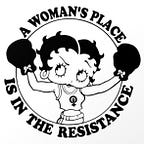She Rises Up (2024), by Maureen Castle Tusty
If you want to change the fate of a community, empower their women. Women will not only feed their family if they get money, most will invest this money to create some kind of business to make more money, besides creating jobs. Women entrepreneurs are soaring in the USA: 49% of new businesses in 2021 were founded by women, a respectable growth from the tax two years prior, that was 28%. In the rest of the world, women are also in the frontline to combat poverty: this is what the documentary “She Rises Up” tells us with examples.
Magatte Wade from Senegal, Africa, has started a cosmetics company called Skin is Skin. In the town of Meckhe, it’s hard for women to get jobs and with the company there they can be now African women making products for other African women.
Most women aren’t financially independent in Sri Lanka, where in 1991 Sandra Wanduragala opened Selyn, a textile factory that allows their female employees to work flexible hours.
Gladys Yupanqui is a businesswoman in Peru, where she has one mini-market. Coming from a traditional home — with a “macho” father and a submissive mother — she stepped up and took risks to open what she defined as a family business, as she employs her parents and also her daughter, who later stops working for her because of irreconcilable differences.
Magatte’s first initiative was a juice company called Alida. When the company received foreign investors they decided to change their suppliers from Senegalese women to big Chinese plantations. This is when Magatte left the company and decided to start her own business.
Covid-19 harmed many small women-led businesses. At Selyn, despite the crisis, there were no layoffs and they decided, to keep working, to make a product needed by millions every month: reusable sanitary pads. There is still a taboo surrounding menstruation and many girls have to skip school when they get their periods — this was already chronicled in the Oscar-winning documentary short “Period. End of sentence” (2018).
There is the danger of the speeches in the documentary that make us think of meritocracy. Magatte starts taking about how you will certainly succeed if you have potential and that she finally fulfilled her potential when she chose to work helping her people from Senegal. She goes further and says that the Africans aren’t poor because of colonialism and slavery, but because of their complicated laws that make life difficult for entrepreneurs. It’s not because they’re poor that everything is so disfunctional, it’s because everything is so disfunctional that they are poor.
Now to some truths: Gladys says that there are further difficulties for female entrepreneurs because they often have a double journey: they take care of the business and also of their children. To balance both is a hard, Selyna from Sri Lanka agrees.
McKinsey and Company has calculated that if women were to participate in world economy to the same extent as men, they would add the equivalent of the combined economy of China and the USA to the world’s prosperity. Yet, nearly one-third of the countries have laws that stifles a woman’s access to work. They limit access to bank accounts, property inheritance and many types of jobs. These countries have some of the highest poverty rates in the world.
There is no place for women’s rights where there is poverty. Selyna says that, for every step forward women take, there is an effort to bring them back to where they were. We’re seeing this with the current conservative wave that is targeting women’s rights, but we keep repeating the motto that will prevail in the ending if we fight: we won’t go back.
